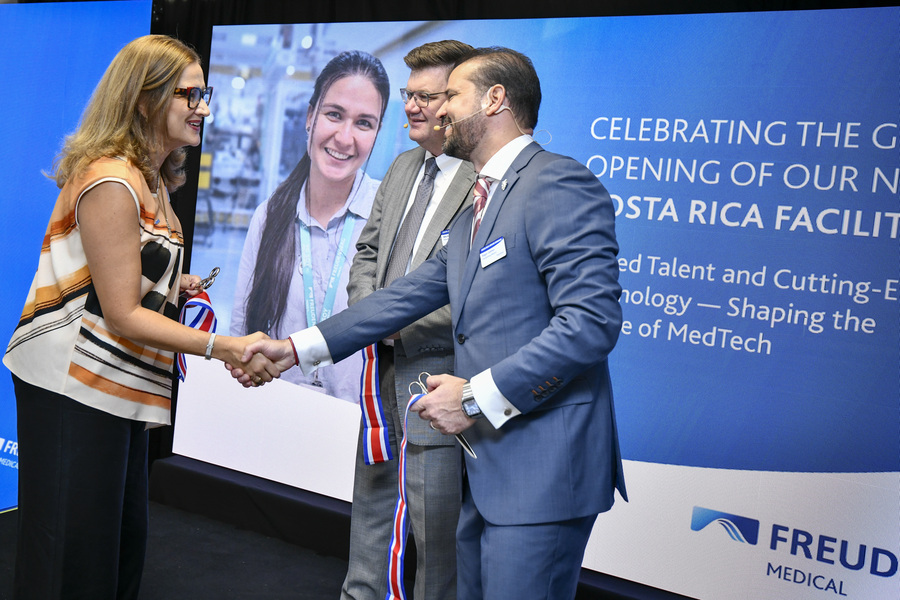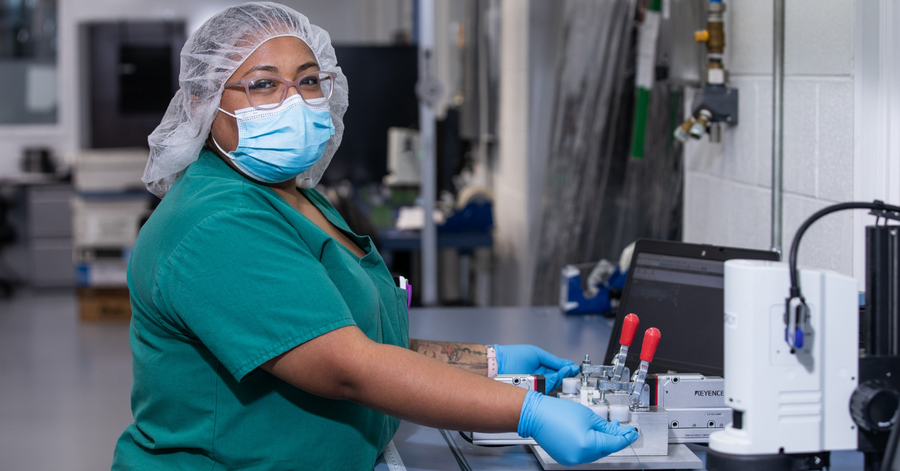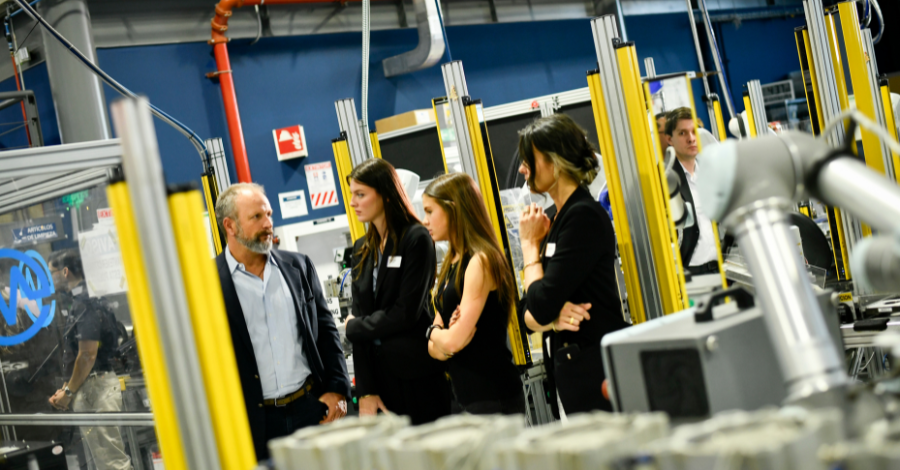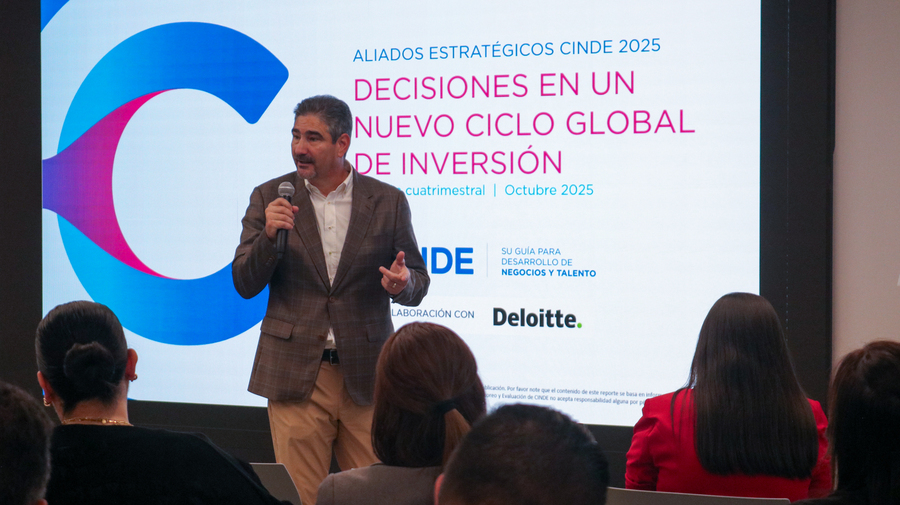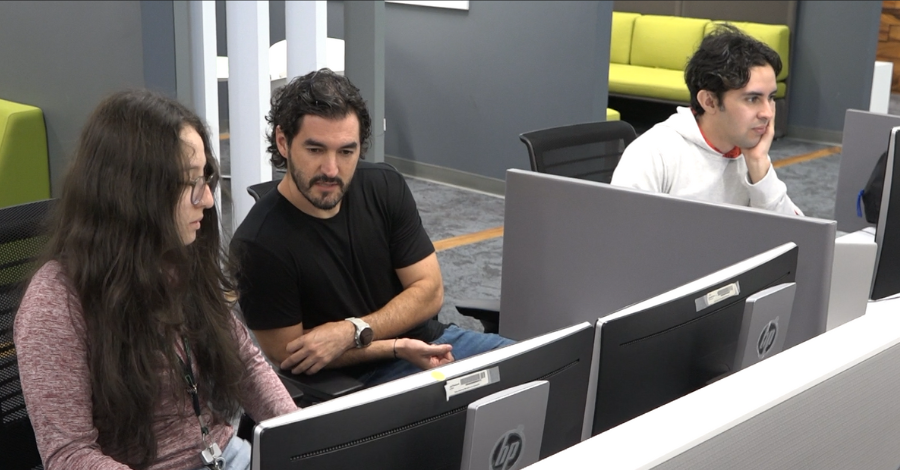NEWS
Ileana Rojas, Manager of Intel Costa Rica: "We are making significant investments in growing and diversifying our production capacity"
- In 2020, the company expanded its production capacity by 25% and, currently, is channeling more resources into expanding and, thus, addressing the world's shortage of semiconductors.
Photo Credit: José Cordero from La Nación
Intel makes important investments, which include those in Costa Rica, to expand its production capacities and, thus, confront the world's shortage of semiconductors.
Ileana Rojas, Manager of Intel Costa Rica, explained that the pandemic brought with it an unprecedented increase in the demand for technologies that use these small chips. Intel requires time to adapt its offering.
Semiconductors are the basic components of all electronic analog and digital devices and are found in a large number of products, such as cell phones, cars, game consoles, computers, and medical equipment, among many others.
The current panorama has made it difficult to meet demand in some industries, such as vehicle manufacturing, which decreased its production when the pandemic began; when the industry again increased its production efforts, there were no longer enough chips to supply demand.
According to the Semiconductor Industry Association's
2020 annual report – in 2018, global chip sales had reached a record $468.8 billion; in 2019, sales decreased by 12%, to $412.3 billion, largely due to cyclicality in the memory market.
A forecast from the Semiconductor World Trade Statistics, published in June 2020, is for sales of $426 billion in 2020; for 2021, it projects that sales will recover to $452 billion.
As one of the largest semiconductor manufacturers in the world, Intel announced this year that they will make a $20 billion investment in expanding its manufacturing capacity, with two new processor production plants in Arizona (United States), $3.5 billion to equip operations in New Mexico (United States), and $350 million over the next three years to restart testing and assembly operations in Costa Rica.
Regarding these expansions and the company's strategy to face this increase in demand, the Intel Manager responded, in writing, to inquiries from this newspaper. Here is a summary:
- Given your knowledge of the business, we would like to hear your interpretation of what is currently happening in the semiconductor market.
- It is a multifaceted challenge, rooted in various causes. Processors are the brains that power essential technologies and are the operational backbone for various industries globally. These products function as the basis for vital technologies, from telecommunications to smart grids and highly specialized industrial equipment.
"During 2020, and due to an increase in our digital lives, due to the pandemic, there was an impressive increase in the demand and use of technology, both for businesses and the final consumers. Millions of people around the world found themselves working from home; personal computers reaffirmed their essential ability to enable human productivity in carrying out their work, as well as a host of other activities, from maintaining contact with loved ones to education and entertainment.
”On the other hand, companies were forced to resort to technologies – from computers and data centers to cloud services – to continue their operations.
“Finally, the design and manufacture of semiconductors is one of the most complex engineering processes that humanity performs, in which hundreds of millions of transistors are packed into areas of a few square millimeters. In fact, it takes approximately 20 weeks for a processor to depart the factory and, in Intel's case, this is carried out in highly specialized centers that offer a unique scale on a global level.
"Broadly speaking, these elements can help us understand the magnitude of the challenge we face today, and at the same time paint an incredible panorama for the future."
"The world, more and more, needs technology, and at Intel, we are pushing known limits to ensure that this global scale guarantees continuity of operations and development of innovations, in industries of all kinds."
- By how much does Intel estimate that semiconductor demand exceeds supply, currently?
- As mentioned, this unprecedented increase in demand for technology has represented a challenge for supply chains around the world. However, to face of this challenge, various world players in the technological ecosystem have developed innovations that lay the foundation for developing the technologies of the future. At the same time, we will ensure the availability of sufficient products and solutions to maintain the world's digital infrastructure.
"To do this, at Intel, we have significantly improved supply for our customers and are making significant investments to grow and diversify our production capabilities. In 2020 alone, we expanded our capacity by more than 25% and we continue to focus on adding supply in high-growth segments."
- Intel announced a $20 billion investment to build two advanced chip factories in Arizona. Intel CEO Pat Gelsinger said this can take between 18 months and 2 years. Are there other measures that you're evaluating, to cope with the situation?
- Without a doubt, the key is to invest and innovate. On March 23 of this year, Intel CEO Pat Gelsinger announced a $20 billion investment to expand our manufacturing capacity, beginning with two new processor production facilities in Arizona.
"This investment not only creates greater capacity for our own products, as, through the creation of our new business, Intel Foundry Services, we will also provide other companies and governments with increased production capacity, and we will access an approximate opportunity with a total market value of $100 billion, by 2025.
(Intel Foundry Services is a new independent business unit led by Randhir Thakur, a veteran of the semiconductor industry. It is a foundry process with a combination of state-of-the-art packaging and processing technology, as the company explains on
its website.)
"$3.5 billion will also be invested in equipping operations in New Mexico, United States, for the advanced manufacturing of semiconductor packaging technologies, such as Foveros, Intel's innovative 3D packaging technology.
”This multi-year investment is expected to create at least 700 high-tech jobs and 1,000 construction jobs, and to support the creation of 3,500 additional jobs in the state. Planning activities will begin immediately and construction is expected to start in late 2021.
“In addition, there is the investment of $350 million over the next three years in Costa Rica, to restart assembly & test operations. This investment is expected to create more than 200 new jobs in the coming months, and the start of these activities is planned for the second half of 2021.
“By increasing and diversifying our capacity, we will guarantee production flow and essential products supply for so many more industries. Thanks to this, we are currently the only company with the depth and breadth of software, silicon and platforms, packaging and processes, paired with manufacturing scale, that our customers trust for their next-generation innovations.”
- Regarding the $350 million investment announced for this year, in Costa Rica – how much does this contribute to meeting increased demand?
- Intel continually assesses its operations around the world, to ensure we have adequate capacity to meet global demand. We will begin assembly and testing operations in Costa Rica, in order to expand our capacity and continue meeting our customers' needs.
”Without a doubt, Costa Rican investment joins an entire global strategy to increase and diversify our capacity. We have significantly improved supply for our customers and are making significant investments to grow and diversify our production capacities ”.
"Without a doubt, Costa Rican investment joins an entire global strategy to increase and diversify our capacity."
- How is the reopening of your chip assembly and testing operations in Costa Rica progressing? When will it begin?
- We're progressing satisfactorily, with the conditioning required in our physical plant, as well as the importation and installation of equipment; any necessary certifications will come from the Corporation. We will begin operations, as planned, in the second half of the year.
- How many workers do you need to complete the requirement of the 200 new employees that you announced last March?
- We are progressing very positively and we have had encouraging news, which can be viewed on our website, at
www.intel.com/jobs. We continue to post job opportunities in Costa Rica. These opportunities are not necessarily one-to-one; in other words, for some posted positions, we may be hiring more than one person.
- The Semiconductor Industry Association warned that it would be very difficult for the shortage to be fully resolved by the end of 2021. What do you think?
- That's right, the United States Semiconductor Industry Association itself points out that this situation does not have a short-term solution. As our CEO, Pat Gelsinger, just mentioned,
we anticipate that this issue will have a possible solution in “a few more years.” However, it is important to understand how clearly this situation demonstrates that, in the future, we will need much more technology to meet a demand that will continue at very high levels.
- What expectations do you have about any possible help that the US Government could offer to stimulate production?
- This is something that our corporation is managing in the United States, so we cannot comment on that.
- How do you foresee the future market?
- As I mentioned before, it is important that we understand that this is a situation that clearly demonstrates to us that, in the future, we will need much more technology and demand will continue at very high levels.
”Intel's new Infrastructure Design Manufacturing (IDM) 2.0 strategy is a differentiated and winning formula that will deliver a new era of innovation, manufacturing, and product leadership through a powerful combination of three capabilities: the Intel internal global manufacturing network for manufacturing at scale (...), an increase in the use of third-party manufacturing capacity (...), and the construction of a world-class manufacturing business, Intel Manufacturing Services.
”We are focused on four areas to deliver leading products and digital innovations for years to come: being a leader in every category in which we compete, flawlessly delivering on our commitments, passionately innovating boldly and quickly, and rekindling our culture to attract and motivate the best colleagues on the planet. Without a doubt, the key is to invest and innovate."



